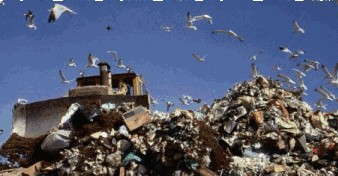Ecce Animot (Behold the Animal)
Language is perhaps one of the most pragmatic of aspects about how we ought to treat (other) animals). It can go a long way in solving the entrenched separation between humans and (other) animals. Feminist and post-colonial theorists have taken giant leaps in the emancipation of their respective fields simply by altering the way we speak.
In feminist discourse terms such as ‘humankind’ instead of ‘man’ and ‘chairperson’ instead of ‘chairman’ were initially irksome to minds familiar with the older terminology, but these days they are widely accepted. The equal political and social standing of women in many countries owes a lot to the altering of thinking away from gender-specific terms to describe non-gender specific related subjects.
The same could be said for race politics. In South Africa there is a concerted effort to refrain from calling people based on racial differences. Terms like ‘black’, ‘white’, ‘coloured’ are avoided, at least in formal legal and political arenas. The heterogeneous nature of our country must be celebrated by avoiding such reductionist terms. By using these oversimplified terms, the speaker denies all other phenomena that make up a person. If someone responds to a question like “What does Nelson do?” by replying “Nelson is a black lawyer,” his or her answer is inappropriate because the question was not asking for racial classification; it was asking what Nelson does. By saying “black lawyer,” the speaker wants the listener to make a racially prejudiced judgement before (s)he considers what Nelson does. More important, the speaker highlights, if not preserves, a racial segregation or stereotype through innuendo, forcing out our prejudices before we consider anything impartially. Inappropriate use of language has this annoying ability to pre-determine our way of thinking.
The same can be said about the use of the word ‘animal’. There has already been a significant shift in how we use the word. Writers are increasingly becoming sensitive to the erroneous use of the word ‘animal’ to describe all beings other than humans, even though humans are animals too. Still, most people, and even some protagonists of animal liberation regard terms such as ‘non-human animal’ or (other) as cumbersome. Some animal rights writers argue that even though humans are animals, putting words like ‘non-human’ every time becomes tedious and breaks the flow of the text. Such ‘unnecessary words’ may be tedious but the point is that such terms must break the flow of text and ergo the flow of thinking about (other) animals. The terms ‘non-human animal’ and (other) animal have to disrupt our reverie every time our eyes pass over them.
The power to name and the need to reject reductive, pejorative designations can be used to good effect with (other) animals. ‘Wild dogs’ and ‘killer whales’ ought to always be called ‘painted dogs’ and ‘orcas’ in order to defer the negative connotation attached to their current names. Adjectives like ‘gregarious’ to only describe (other) animals when ‘social’ will do both for human animals and community-based non-human animals. Or refiguring the adjective ‘humane’ when it is clear that the most beastly of all beasts are humans.
However, the singular noun ‘animal’ remains the primary stumbling block, one that French philosopher Jacques Derrida believed had to be overhauled before one could move toward proper fair treatment of (other) animals. To use the word ‘animal’ to refer to all non-human animals and by doing so deny their great heterogeneity is simply unethical.
As a result, Derrida introduces a simple statement ‘Ecce animot’. The original title Ecce Homo stems from the utterance of Pontius Pilate in the Vulgate when he presents Jesus Christ to a hostile jury shortly before his crucifixion. The English translation is ‘Behold the Man’. Derrida’s ‘Ecce animot’ is read ‘Behold the Animal’ suggesting ‘Behold Man-as-Animal’, meaning that is how humans ought to be judged – as animals too.
‘Animot’ is not a real word but sounds exactly the same as the French plural for animals, animaux. Derrida is registering both his dislike for the use of the word ‘animal’ and the common insistence of using the term in its non-human generality. Furthermore, the suffix ‘mot’ is French for ‘word’. The ‘mot’ is there to remind us that what is chiefly the reason behind our tendency to reduce and atomise non-human animals is language. The structure of language is the most fundamental challenge for a new ethic on how we humans view (other) animals. It is these oversimplified distinctions that separate human animals from all others that above all need to be dismantled in order to supply a tangible ethic for all animals – each and every one.




